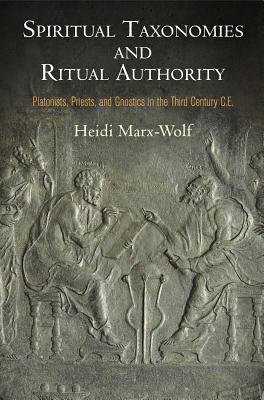
Spiritual Taxonomies and Ritual Authority: Platonists, Priests, and Gnostics in the Third Century C.E.
بواسطة
Heidi Marx-Wolf
لا توجد تقييمات بعد
تنسيق
غلاف صلب
صفحات
216
لغة
الإنجليزية
منشور
Feb 2, 2016
الناشر
University of Pennsylvania Press
رقم ISBN-10
0812247892
رقم ISBN-13
9780812247893
الوصف
In the late ancient Mediterranean, the understanding of the divine was complex and multifaceted. Heidi Marx-Wolf delves deeply into how various groups such as Platonists, priests, and Gnostics navigated their spiritual landscape during the third century C.E. This examination reveals a rich tapestry of beliefs and practices as individuals sought to connect with the larger cosmos.
Through careful analysis, Marx-Wolf unearths the distinct spiritual taxonomies that shaped the interactions between these diverse communities and their divine counterparts. Each group had its own rituals and authority, influencing their followers' perceptions of the gods, angels, and demons that permeated their lives. This intricate interplay raises vital questions about religious authority and the significance placed on ritual practices.
The work provides a compelling narrative that highlights how these ancient thinkers and spiritual leaders interpreted their world and established their understanding of the supernatural. By intertwining philosophical discourse with real-life rituals, the author invites readers to consider the profound impact these beliefs had on the cultural and spiritual identity of the time.
Through careful analysis, Marx-Wolf unearths the distinct spiritual taxonomies that shaped the interactions between these diverse communities and their divine counterparts. Each group had its own rituals and authority, influencing their followers' perceptions of the gods, angels, and demons that permeated their lives. This intricate interplay raises vital questions about religious authority and the significance placed on ritual practices.
The work provides a compelling narrative that highlights how these ancient thinkers and spiritual leaders interpreted their world and established their understanding of the supernatural. By intertwining philosophical discourse with real-life rituals, the author invites readers to consider the profound impact these beliefs had on the cultural and spiritual identity of the time.